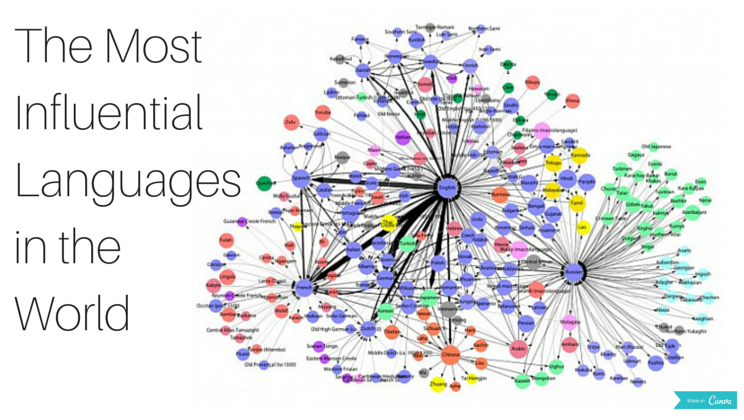Best languages to speak if you want to change the world [interactive chart]
Posted by staff / December 15, 2014
We won’t keep you in too much suspense; if you want to be a voice heard ’round the world, speak English, but for a broader reach than that, check out this research from Shahar Ronen and his colleagues from MIT, Harvard University, Northeastern University, and Aix-Marseille University.
Ronen and [his] co-authors…tackled the problem by describing three global language networks based on bilingual tweeters, book translations, and multilingual Wikipedia edits. The book translation network maps how many books are translated into other languages. For example, the Hebrew book, translated from Hebrew into English and German, would be represented in lines pointing from a node of Hebrew to nodes of English and German. That network is based on 2.2 million translations of printed books published in more than 1000 languages. As in all of the networks, the thickness of the lines represents the number of connections between nodes. For tweets, the researchers used 550 million tweets by 17 million users in 73 languages. In that network, if a user tweets in, say, Hindi as well as in English, the two languages are connected. To build the Wikipedia network, the researchers tracked edits in up to five languages done by editors, carefully excluding bots.
A language’s literacy and presence online have a huge impact on whether or not they’re considered major players, even if the number of speakers of a certain language outnumber another.
One example is the strength of Dutch versus Hindi; obviously, Hindi speakers represent a larger population, but Dutch is more frequently used online and, therefore, has a farther reach.
No worries if you spent high school studying Spanish, though; it’s still a major player. Latin, unfortunately, is still dead.
Full story at Global Language Network via Science Magazine.
Chart credit: S. RONEN ET AL., PNAS EARLY EDITION (2014), Graphics credit: Canva
[…] No worries if you spent high school studying Spanish, though; it’s still a major player. Latin, unfortunately, is still dead. Read more… […]